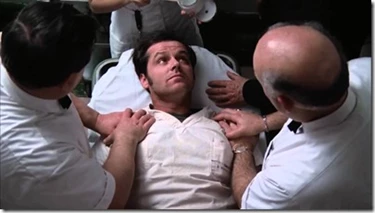 A severely depressed and suicidal client agrees to several rounds of electroconvulsive therapy (ECT). When she returns to her outpatient clinic, she reports that her symptoms of depression have lifted, but that she doesn't remember much about the weeks when she was receiving ECT. Her response to this treatment is:
A severely depressed and suicidal client agrees to several rounds of electroconvulsive therapy (ECT). When she returns to her outpatient clinic, she reports that her symptoms of depression have lifted, but that she doesn't remember much about the weeks when she was receiving ECT. Her response to this treatment is:
A. Typical; ECT often causes some short-term memory loss.
B. An indication that the depression really hasn't lifted at all.
C. An indication that she is very conflicted about the treatment; the clinician needs to help her work through these issues.
D. Critical; she needs to see her psychiatrist as soon as possible to prevent permanent brain damage.
What's your answer?
Let's take a look at rationales from the bottom up.
D. ECT is not associated with lasting or progressive brain damage. The client might find it reassuring to speak to her psychiatrist about her concerns, but there's no medical emergency.
C. Other than having some questions about side effects, the client does not appear conflicted about or hostile towards the treatment.
B. The client says her symptoms of depression have lifted, and there's no reason for the clinician to doubt her.
A. ECT is often associated with short-term memory loss. The memories of this time period may or may not return to the client.
So there you have it.
One of the side effects of ECT is some short-term memory loss. These memories may or may not return over time. The client is not in any danger and appears to be doing well after the treatments.
Now you know. Want to know more? Here's the Mayo Clinic's ECT info page.
Get lots more practice and explanations and deep info links with SWTP's complete exams. Sign up to get started and we'll send you our free ASWB exam study guide.
Ready, set…go!

 A severely depressed and suicidal client agrees to several rounds of electroconvulsive therapy (ECT). When she returns to her outpatient clinic, she reports that her symptoms of depression have lifted, but that she doesn't remember much about the weeks when she was receiving ECT. Her response to this treatment is:
A severely depressed and suicidal client agrees to several rounds of electroconvulsive therapy (ECT). When she returns to her outpatient clinic, she reports that her symptoms of depression have lifted, but that she doesn't remember much about the weeks when she was receiving ECT. Her response to this treatment is: